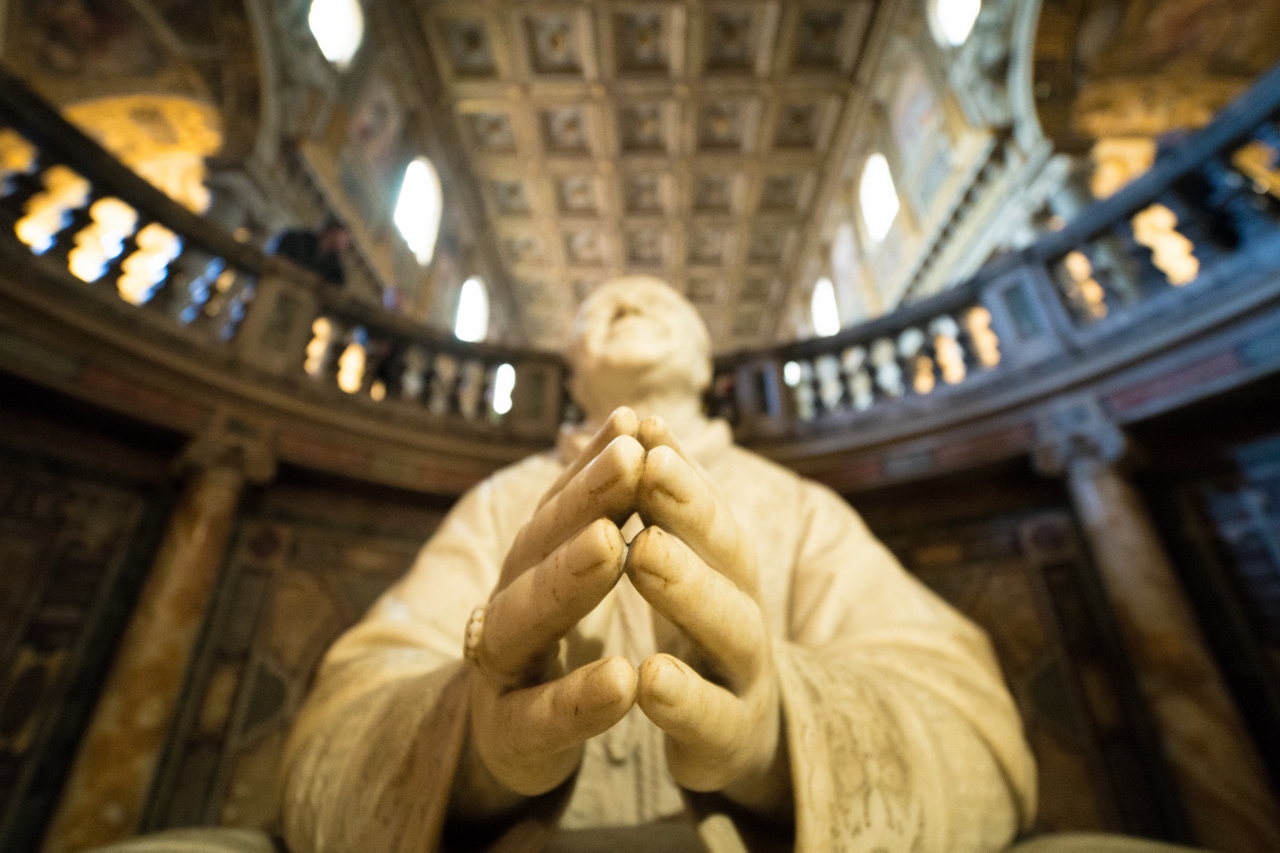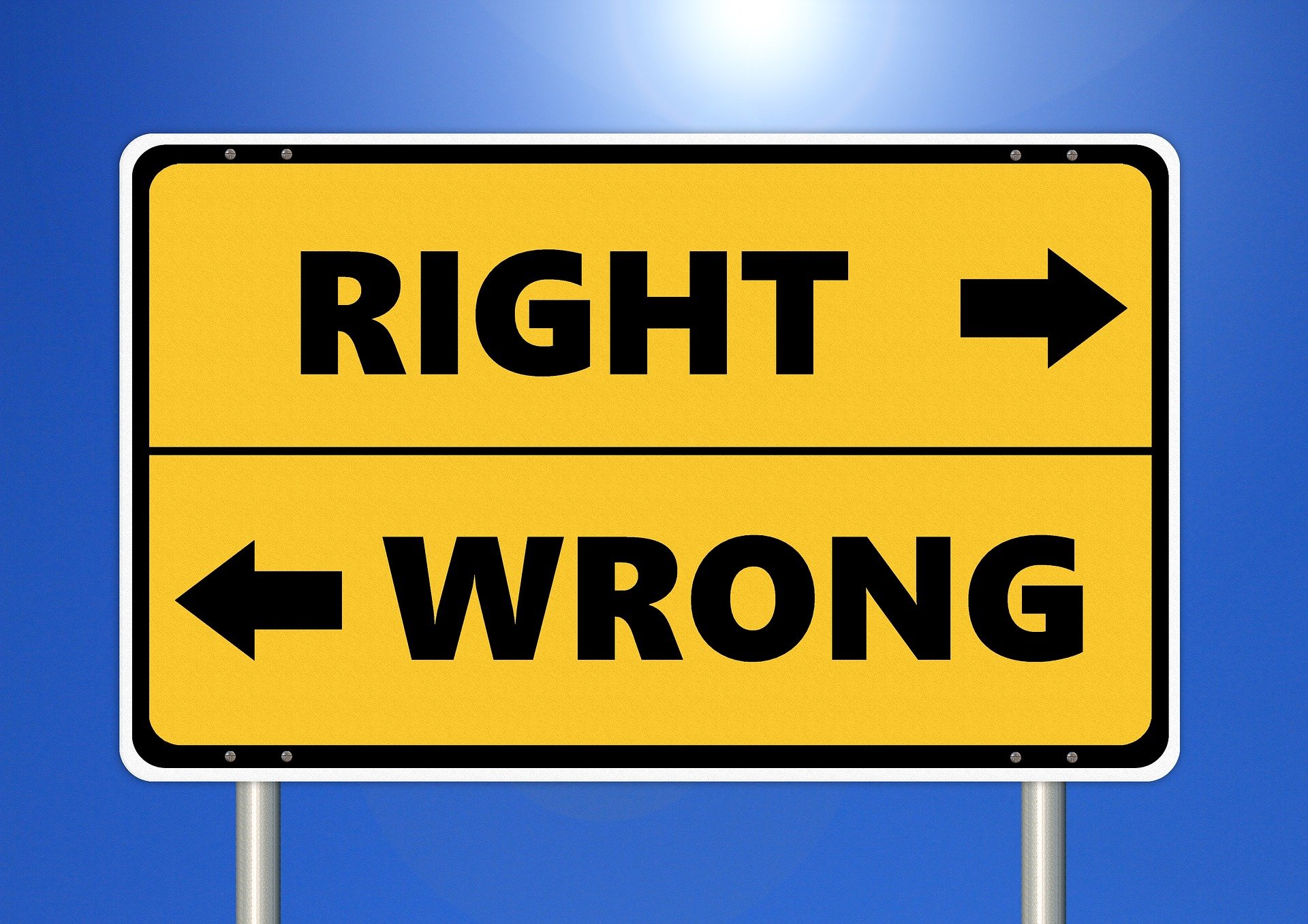Is There Such a Thing as Absolute Truth?
A famous fable tells of a group of blind men who encounter an elephant. One finds the tail and concludes that he found a whip. Another grasps a leg and says it’s a tree. Yet another feels the side and thinks it’s a wall. The blind men begin to argue over who is right. Finally, someone who can see the elephant explains that they all understood part of the elephant, but they needed to pool their insight to know what they were really experiencing.
This story is often told to illustrate relativism, which asserts that there is no absolute truth. According to this system of thought, whatever someone believes is correct, is correct for him/her, but not in a real, objective sense that is true for everyone. Relativism argues that the men in this story were all correct and there was no reason for them to argue. Many people are motivated to deny absolute truth because of their exposure to religions, cultures, and ideologies that appear to be different. Perhaps, if truth is relative, we can all agree to disagree and move on with our lives instead of fighting with each other. To be fair, the elephant fable does show us that truth is often complex and it is valuable to listen to the insights of others. Still, as an argument for relativism it falls short, because it depends on there being an objective observer, someone who in fact does see the whole elephant. The tale only works if objective truth (in this case, the presence of the elephant) is there waiting to be discovered.1
The very statement “there is no absolute truth” is self-refuting. British philosopher Roger Scruton summarized the problem well when he said, “A writer who says that there are no truths, or that all truth is ‘merely relative,’ is asking you not to believe him. So don’t.”2 In other words, the statement is itself a truth claim. Furthermore, while it seems open-minded, it actually discounts everyone who does believe in the objective rightness of his or her position. A desire to respect people and cultures who hold contrasting views is a major reason why relativism has become so prominent. However, if absolute truth is denied, then we have no motivation to take opposing viewpoints seriously because the search for truth is ultimately futile.
In practice, we rely on absolute truth every day. Technology, which is central to modern life, depends on mathematical equations and the principles of classical physics. If statements such as 2+2=4 and “acceleration equals the change in velocity divided by the time elapsed” are mere opinions, then our cell phones shouldn’t work and we should certainly be afraid to fly. The scientific method itself presupposes the existence of absolute truth and our ability, with sufficient education and research, to discover it.
The study of history also constitutes a search for truth. Historical research assumes that people take real actions in time that can be established via evidence. When historical facts are misrepresented or rejected, there are real consequences. For instance, Holocaust denial is rooted in, and fosters, antisemitism. It is easily refuted with historical evidence such as eyewitness testimony and government documents. However, if relativism is taken to its logical conclusion, then there is no objective basis to disprove this falsehood. As British historian Felipe Fernandez-Armesto warns, “Without confidence in the concept of truth, listeners are disarmed against lies.”3
Relativism also has repercussions for morality. Many ethical questions are indeed difficult to navigate, but there must be some enduring, objective moral principles, such as the value of human life, to guide us and society. Nevertheless, according to a consistent relativism, no action can be condemned, not even a clear-cut crime like cold-blooded murder; each person should do what seems right to him/her. It is unlikely that relativism applied to larger societal groups would fare any better; if each society can determine what is right for its members, then we have lost any ability to condemn the Holocaust, since the genocide was conducted according to German law. In contrast, absolute truth affirms that certain deeds are inherently wrong and should be opposed, providing a solid basis to challenge injustice (Proverbs 31:8).
Seeking and knowing spiritual truth is essential to how we live our lives, just as knowing biological facts is essential to being a doctor. What we believe about God and eternity has immediate consequences for how we treat each other, what we value, and how we spend our time and money, so we should be concerned with whether our spiritual beliefs are objectively true or false.
The elephant story mentioned earlier is especially common among people who claim that all religious systems are true, and it is necessary to reconcile them to really know what God is like. However, different faiths often contradict each other. For instance, some people believe there is no God, some worship one, and others revere hundreds of gods. Some spiritual beliefs are correct, and many are wrong. The Bible makes truth claims, and the question is—are they correct? On this site, we examine these claims and how they affect our lives. We invite you to discover what the Bible has to say and consider whether it is true.
Footnotes
- For a more in-depth critique of the elephant illustration, see Greg Koukl, “The Trouble With the Elephant,” Stand to Reason, February 20, 2013, https://www.str.org/w/the-trouble-with-the-elephant (accessed June 30, 2020).
- Roger Scruton, Modern Philosophy (Bloomsbury Reader, 2012), 6.
- Felipe Fernandez-Armesto. Truth: A History and a Guide for the Perplexed, (Thomas Dunne Books, 2013) 165.



 Credit: Freepik
Credit: Freepik Ad Meskins
Ad Meskins



